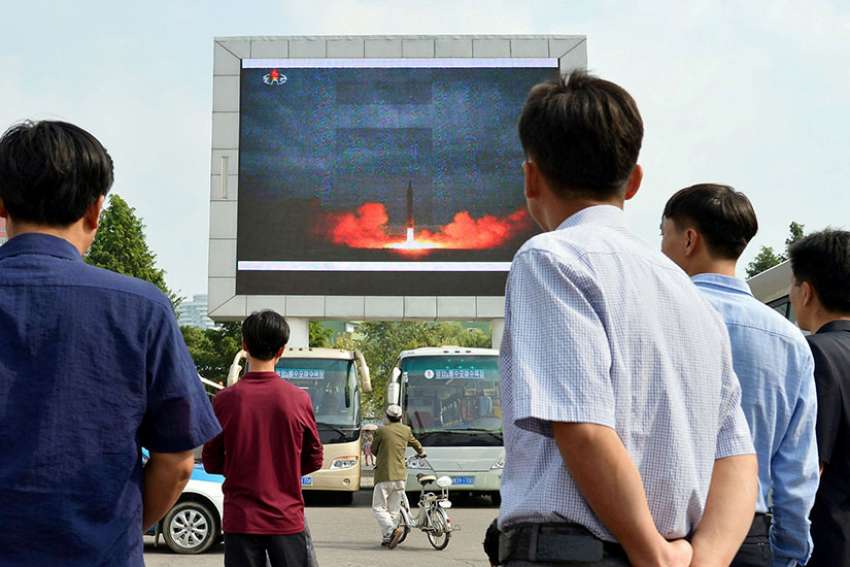The crisis unfolding on the Korean peninsula is more proof of that. Even small, impoverished nations can build these horrible weapons and develop systems to deliver them. It turns out rocket science isn’t so complicated after all. Much more complicated is figuring out how to rid the planet of nukes before one goes off.
North Korea may be today’s problem but the larger challenge is moving past a 70-year-old argument that nuclear arms are vital instruments of peace. When world powers insist their arsenals — and the threat of mutual mass destruction — deter aggressors and avoid war, it is natural for other nations to demand the password to let them into this supposedly war-free club.
Who can blame them? How do you convince people who feel threatened, reasonably or not, that they can’t have the same deadly weapon that may be pointed at them, particularly when that weapon’s very existence is supposed to assure security? There was probably no diplomatic argument or international sanction that could have persuaded North Korea to shut down its weapons program.
Pope John XXIII saw this coming. His 1963 encyclical Pacem in Terris predicted nuclear proliferation unless the small handful of nuclear powers destroyed their stockpiles of warheads and agreed to a nuclear ban before things got out of hand. When one country justifies nuclear arms, others will inevitably follow with their own “equally destructive” weapons, he wrote.
Catholic teaching has consistently opposed the doctrine of nuclear deterrence because the policy is based on an immoral premise, the misguided belief that inflicting massive human suffering can in some circumstances be justified. Nuclear war can never be a just war because its ultimate objective is obliteration, not peace between nations.
Sadly, the world recently missed another opportunity to inch forward the cause of disarmament. In July, 122 nations agreed to a nuclear weapons ban. But more notable than all those signatories is the list of nations which refused even to sit in on disarmament talks, including every current nuclear-arms power, plus Canada and its NATO allies.
A statement released by the United States, Britain and France declared that “the ban treaty is incompatible with the policy of nuclear deterrence, which has been essential to keeping the peace in Europe and North Asia for over 70 years.”
Even as North Korea barges into the nuclear club, the old boys are clinging to their party line. That’s troubling, because the future urged by John XXIII of a world free of the threat of mass destruction becomes impossible if nuclear powers won’t even join the conversation.

